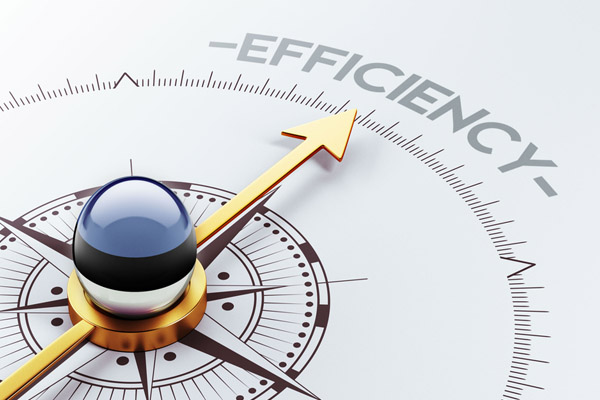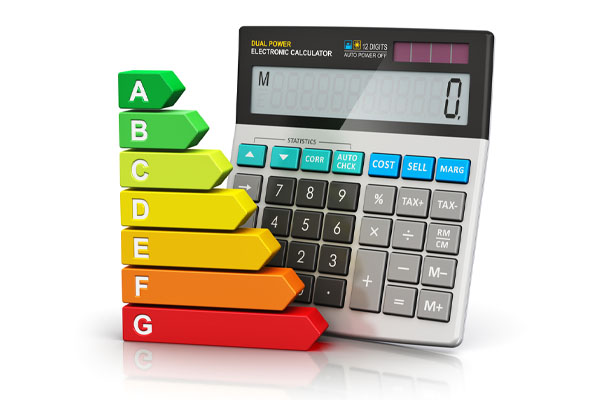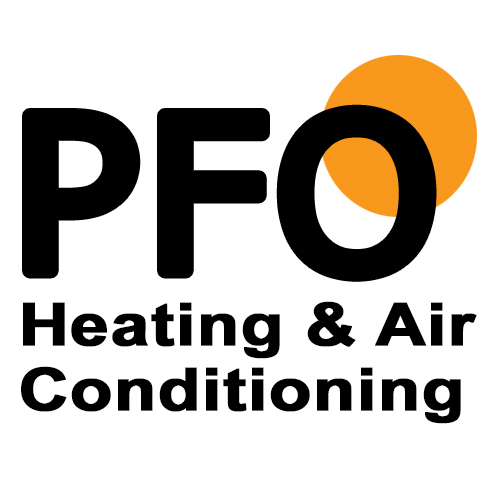
An article from Energy Star narrates that almost half of a household’s energy costs are associated with the cooling and heating system. Therefore, it’s vital to make smart decisions about your system’s care, including tune-ups, replacements, and repairs. If you’re facing a heating system replacement, then you should be familiar with its AFUE rating. This efficiency rating impacts your energy usage and costs. Read on to learn more about AFUE rating.
What Is AFUE Rating?
Contents
The Annual Fuel Utilization Efficiency (AFUE) was created by the American Society of Heating, Refrigerating and Air Conditioning Engineers (ASHRAE). It is depicted in percentages and measures a heating system’s energy efficiency. Generally, AFUE can be defined as the ratio of the generated heat versus the heating unit’s total fuel consumption.
To calculate the AFUE rating of your heating system, divide the amount of fuel the unit uses by the amount of heat generated that is usually represented by the British thermal unit (BTU). A system that has a 90% AFUE value means that 90% of its fuel energy is used for heating while the 10% is lost to several factors such as inefficient burners and chimneys. Note that AFUE doesn’t account for the heat lost in the HVAC pipes and ducts. The lost heat could be a significant amount. The US Department of Energy states that ductwork in unconditioned areas around your house, such as attics and garages, can have as much as 35% of energy output loss.
A high AFUE value translates to higher energy efficiency and lower fuel costs. However, remember that electric heat pumps do not use AFUE when in heating mode and use Heating Seasonal Performance (HSPF) instead. The US Department of Energy currently uses AFUE as the national measurement standard for the combustion efficiency of a heating system.
The DOE has set minimum AFUE ratings for gas heating units to promote energy efficiency throughout the US. It is currently at 80% for the Southwest region and 90% for the Northwest region. Consequently, nearly all new furnaces made today have a 90% AFUE rating, if not better.
How To Find The AFUE Rating
The Federal Trade Commission requires manufacturers of boilers and furnaces to indicate the AFUE ratings of their products. This way, customers can make smart choices when purchasing their heating system. Most manufacturers have this information on a yellow tag called the EnergyGuide label. It is found in most appliances, but if you can’t find the rating or the yellow tag isn’t there, you can check the owner’s manual. You can also check the website of the retailer or manufacturer for this info. Remember that heating systems become less efficient as time passes. Therefore, the printed AFUE rating on your system may be higher than the current rating of your system. Hire a professional HVAC tech to help you measure the actual AFUE rating of your heating system.
What Is A Good AFUE Rating?
 The US DOE states that an AFUE rating of 80% and up for the Southwest region and 90% and above for the Northwest is good. However, heating systems usually become less efficient over time. If you have an old or under-performing heating system, they may have low AFUE ratings ranging from 56% to 70%. According to the DOE mandate, new systems should have at least a 78% AFUE rating. Heating systems can be classified into three based on their AFUE ratings:
The US DOE states that an AFUE rating of 80% and up for the Southwest region and 90% and above for the Northwest is good. However, heating systems usually become less efficient over time. If you have an old or under-performing heating system, they may have low AFUE ratings ranging from 56% to 70%. According to the DOE mandate, new systems should have at least a 78% AFUE rating. Heating systems can be classified into three based on their AFUE ratings:
- Low-efficiency systems (less than 80%)
- Mid-efficiency systems (80% to 89%)
- High-efficiency systems (90% or higher)
The highest AFUE rating is 97% to 98.5%, as firing and distribution losses and other inefficiencies linked with heating units are accounted for.
How Can Homeowners Use AFUE Ratings?

AFUE rating is a measurement of your furnace efficiency. These heating units generally get less efficient over time, so older furnaces are expected to have lower AFUE ratings. Heating systems sold in the US before 1975 didn’t need to meet a minimum AFUE value. It was set to 78% in 1987 by the DOE and was raised to 80% in 2015. Furnaces that are 15 years or older are usually no longer efficient, making them costly to run. Getting a furnace replacement with even a low-efficiency AFUE rating will result in higher energy savings and lower energy costs. Choose a furnace with a higher AFUE rating if you want more savings. Furnaces with 98.5% AFUE ratings are the most energy-efficient ones on the market today. Keep in mind that the AFUE rating you select will have a substantial effect on your energy bills and carbon footprint.
Should I Buy A High-Efficiency Furnace?
Before purchasing a furnace, several considerations need to be factored in. First is the region where you live. If it is a place where there is cold weather that requires using the furnace often, it is best to have a high-efficiency furnace. This is because it can provide you with higher savings down the line. A high-efficiency furnace can be up to 18.5% more energy efficient compared to a low-efficiency one. Several studies show that American households spend an average of $600 or higher on home heating per year. This means you can have as much as $111 in savings each year with a high-efficiency system.
You should also think about your budget. High-efficiency furnaces can cost approximately $1000 more than their mid-efficiency counterparts. The good news is that furnaces generally last 15 to 20 years. If you have $111 savings for 15 years, you will rack up to more than $1,600. This means you can get back the additional system installation cost over time.
Features of High AFUE Furnaces
Furnaces with high AFUE ratings generally offer new technologies and features to provide increased energy efficiency. Some of its remarkable features are:
- Improved air filtration systems
- Variable-speed blowers
- Secondary heat exchanger
- Variable heat output
- Direct spark ignition systems
Conclusion
AFUE is a unit of measurement for your heating system’s efficiency. It is used by the US Department of Energy to set the furnace efficiency standard. As a result, all furnaces sold in the country should have an 80% or higher AFUE value.
Call PFO Heating & Air Conditioning For All Your HVAC Requirements
 For superior HVAC services in the Greater Princeton, NJ area, get in touch with PFO Heating & Air Conditioning. Our professionally certified and highly skilled technicians can perform high-quality HVAC services, including repairs, maintenance, replacements, and installations. We only hire the best techs who are knowledgeable and experienced in servicing your HVAC system correctly.
For superior HVAC services in the Greater Princeton, NJ area, get in touch with PFO Heating & Air Conditioning. Our professionally certified and highly skilled technicians can perform high-quality HVAC services, including repairs, maintenance, replacements, and installations. We only hire the best techs who are knowledgeable and experienced in servicing your HVAC system correctly.
PFO Heating & Air Conditioning offers the most competitive HVAC service rates in the locality. Our tune-up services can increase your home’s efficiency and comfort while lowering your heating and cooling bills. If your HVAC system needs to be repaired or replaced, we can recommend the best and most budget-friendly solutions. To ensure your satisfaction, all our work is guaranteed. Give PFO Heating & Air Conditioning today to book your next service appointment and get a free, in-home estimate.
Click here to contact us now or call us at (800) 253-9001 to find out more!



